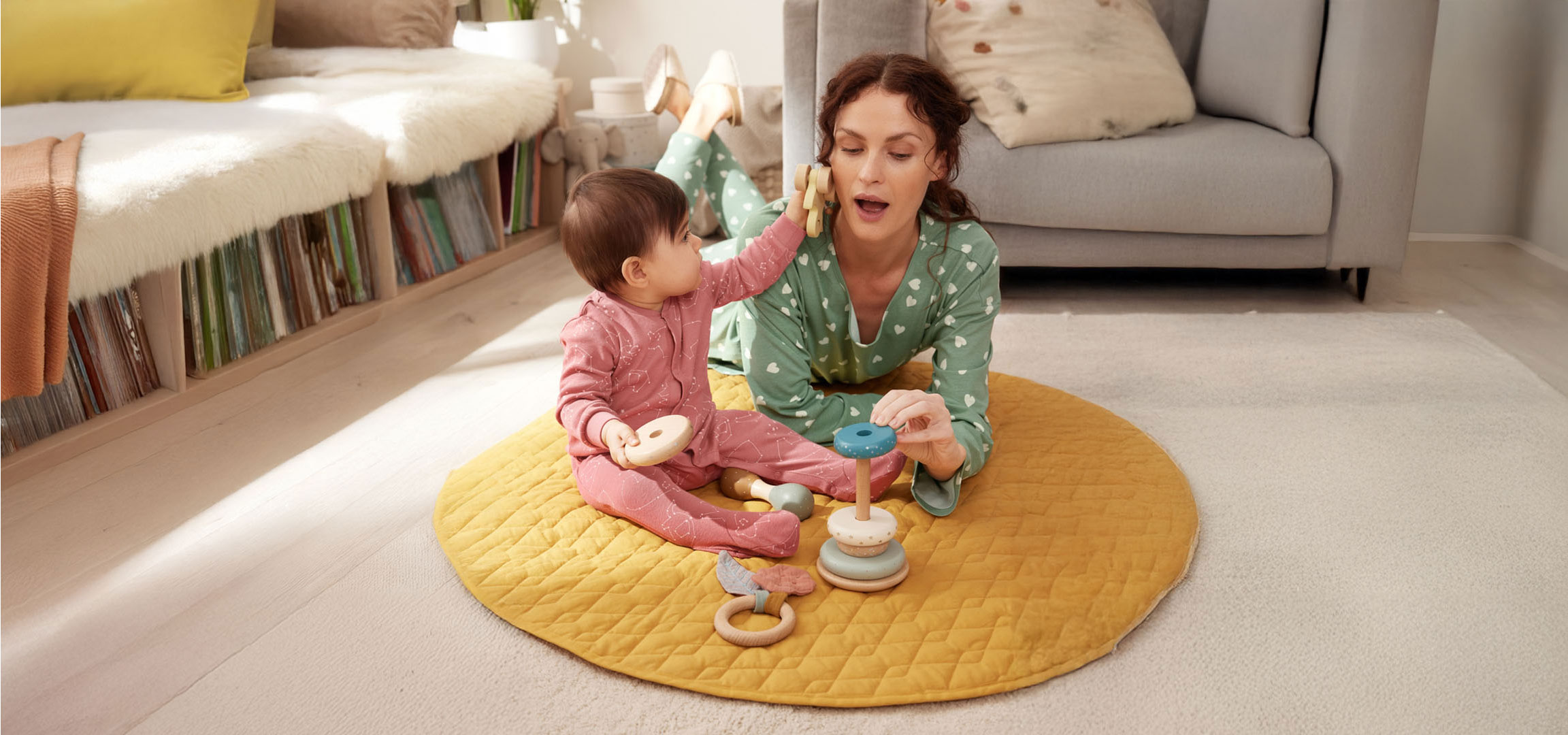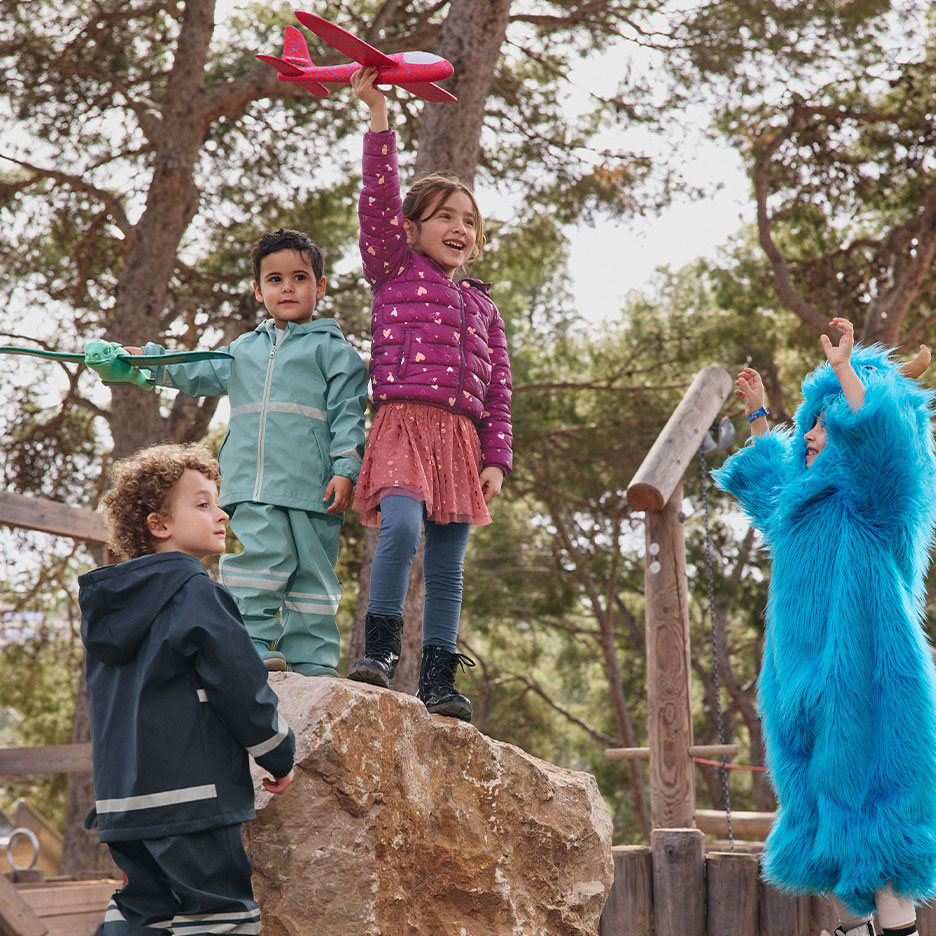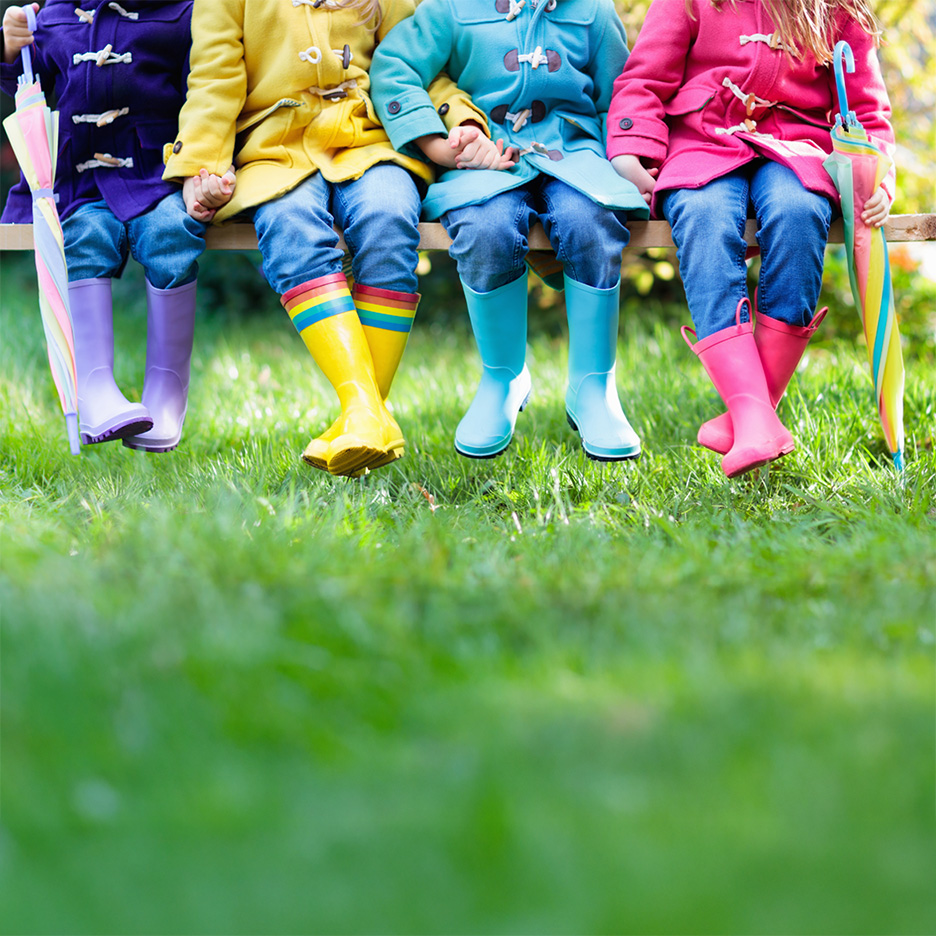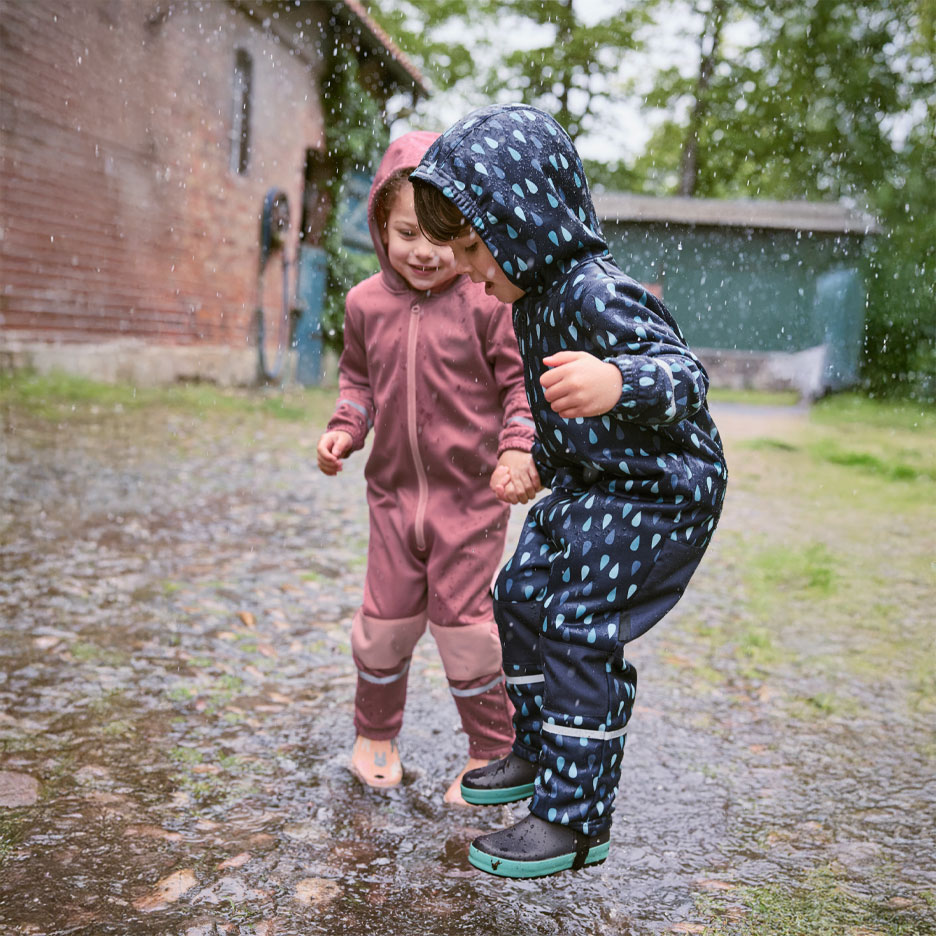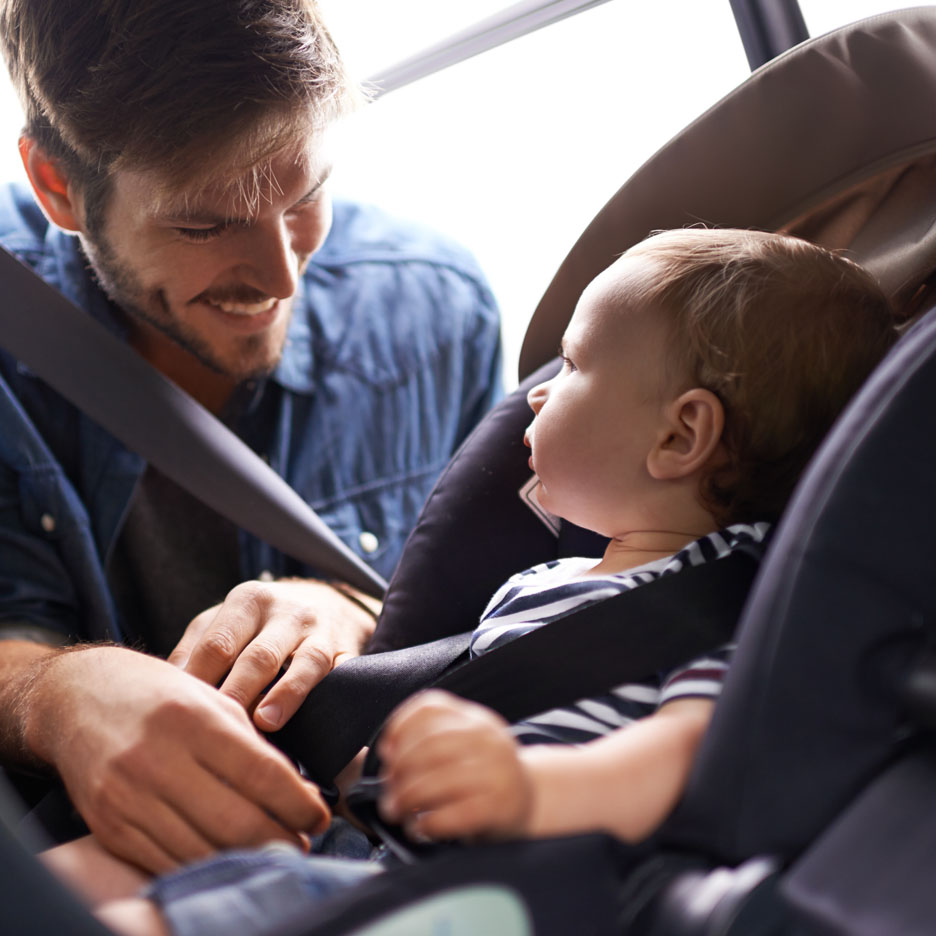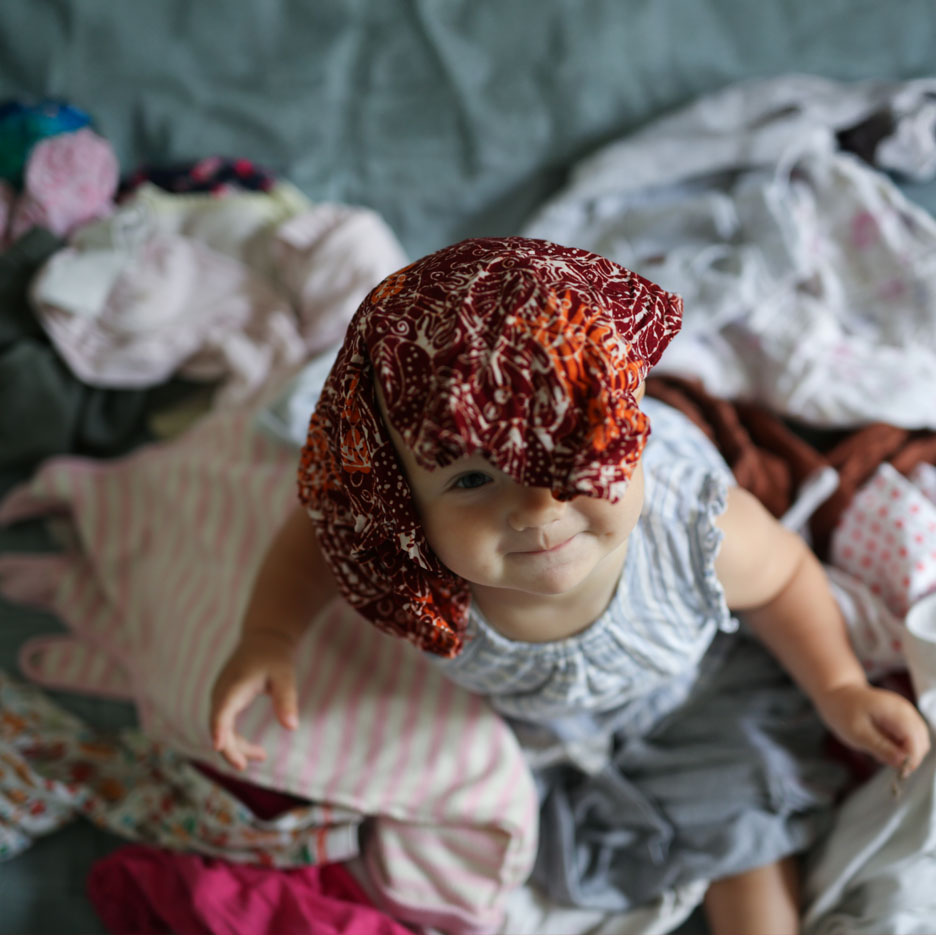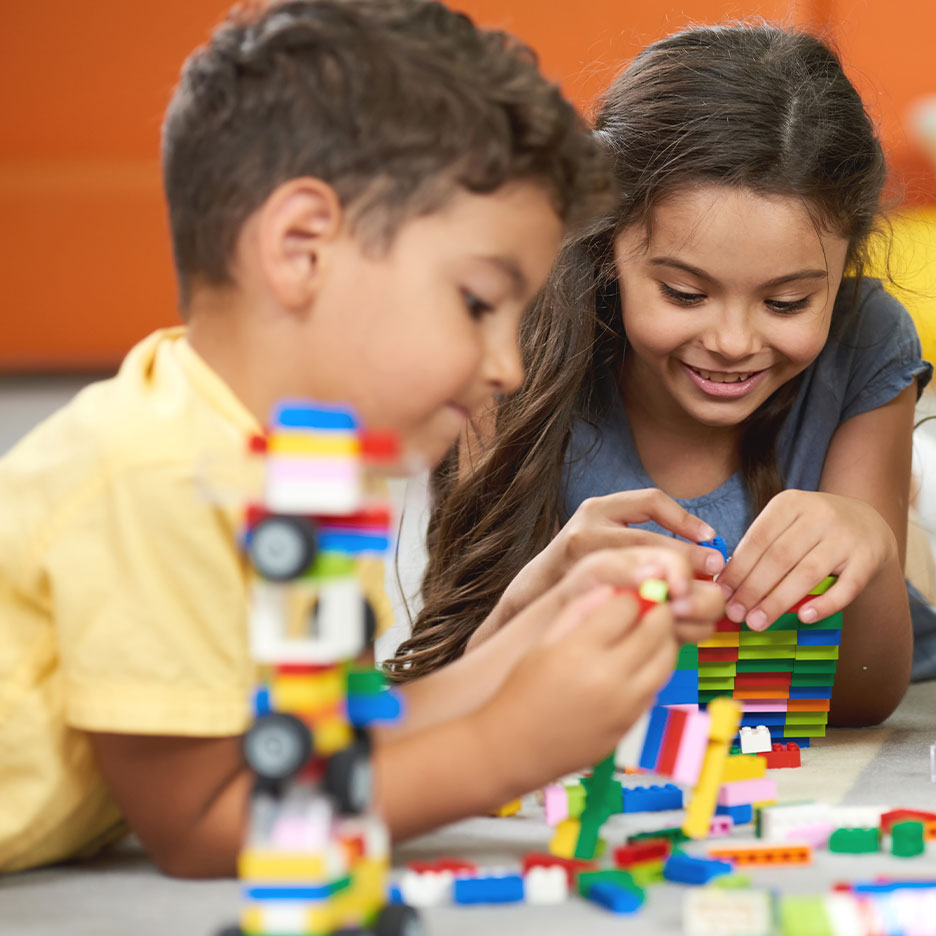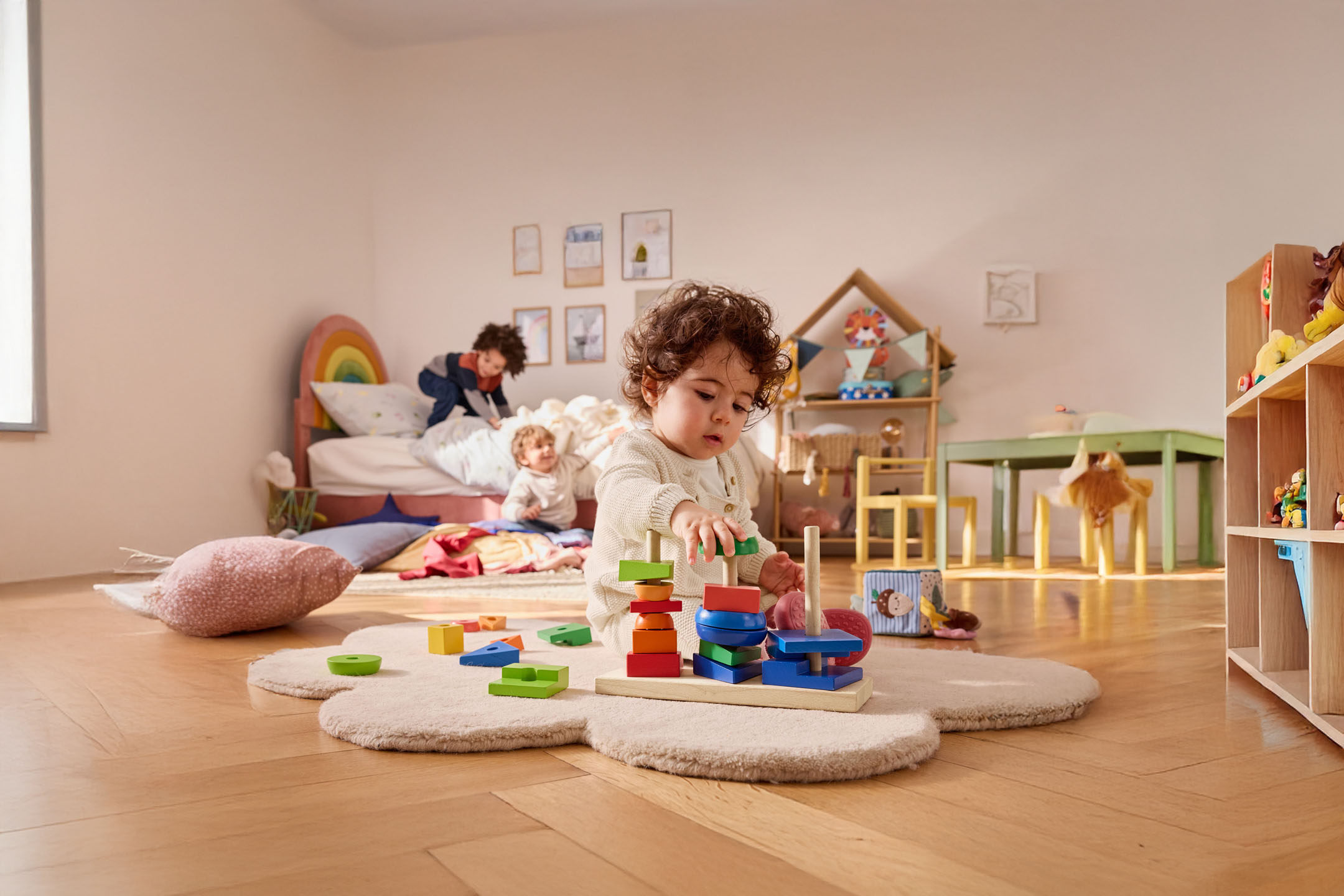Language development in babies
Your baby is not even born yet, but its language development has already begun - it begins in the womb. From the 22nd week of pregnancy, your baby hears the first sounds, listens to your voice and perceives melodies.
When and how quickly babies learn to speak depends on many factors. You can support your little one in language development by encouraging baby to make sounds and enjoy music. Here you will find interesting facts and helpful tips for age-appropriate language development for your baby.
What does your baby need to learn to speak?
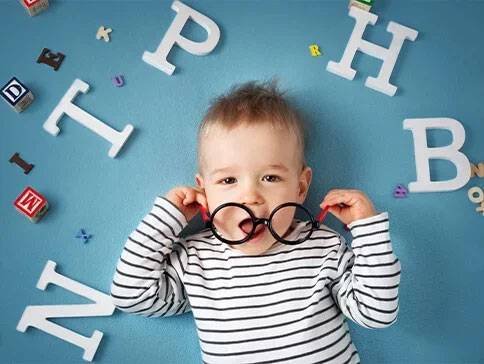
From birth, your baby should have everything necessary for language acquisition. These include the diaphragm, lips, cognitive abilities, tongue and, last but not least, hearing and vocal cords. All muscles and organs are designed and trained in such a way that learning to speak for your little one is a learning process that takes place in several developmental steps.
When does your baby learn to speak?
The first four weeks of life
Your little one screams when they are hungry, tired or unwell. Baby is already communicating. Parents quickly find out what is bothering their baby at the moment. In the first four weeks of life, your little one will already recognize your soothing speech melody among other voices.
Second Month
At about six weeks, your sweetheart begins to make his first sounds, which are expressed in cooing and grunting. This is also referred to as the first babbling phase. Many babies now also show their first conscious laughter.
Third Month
At this age, it begins with the first throat sounds. The tongue slips into the back of the mouth and the unconscious cooing turns into a gurgling with some R-sounds.
Fourth and fifth months
Your little one might masters their own voice better and better. It is one of the first major milestones when your baby learns to speak, as baby now uses their voice consciously. An early childhood monologue begins, your baby laughs and cheers at joy and begins to "chat". Some children are now becoming more vocal, while others are more reserved and only utter a few sounds every now and then.
Sixth month
Around the sixth month, the second babbling phase begins, which is already quite similar to mature speech. Your baby now strings together the first syllables - it sounds like this, for example: "lalalalalal".
Seventh to ninth month
Your baby now forms whole chains of syllables. During this time, "mamamamam" eventually becomes "ma-ma". At first, this word is still meaningless. Based on your joyful reactions, however, your baby will very quickly associate these sounds with you. Soon, it will deliberately shout "Ma-Ma" to address you.
Ninth month
The language development is now in full swing and the so-called reverberation phase begins. Although your baby only speaks very few words consciously, baby can already assign a name to hundreds of things, and there are more every day. Now it's only a matter of time before the first words and later the first sentences bubble out of your treasure.
Important:
Every child is unique and language acquisition does not always follow the same pattern. There are so-called "late talkers". These children soak up words like a sponge, but start speaking later than others. But then they caught up with their peers within a few weeks to months. During the regular U-examinations, the language development of your sweetheart is checked. However, if you are concerned that your little one is not learning to speak properly, you should contact your GP.
How to encourage your baby to speak?
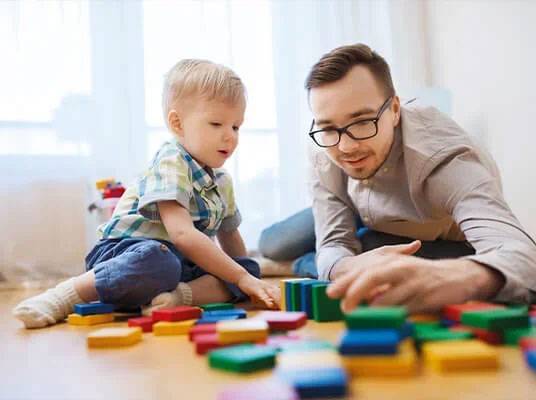
Reading aloud, singing and telling stories - are all really important to start your babby on their language journey. It is important that you adapt the methods to the needs and stage of development of your baby. Explain and show baby the world, even if you know that your baby doesn't understand everything yet. Background noises such as television or radio usually overstimulate children. You should therefore reduce these to a minimum in the presence of your baby.

Promote language through play
Books are ideal for helping your little one learn the language – provided baby shows interest in them. It is important that you not only name the images, but explain exactly what is happening in the pictures. Hand puppets are also a great support – your favourite teddy bear also works – with which you can tell stories or sing songs. Finger verses also captivate children and support learning to speak.
Summary:
The first words from your baby are something very special for many parents and are eagerly awaited. When your baby learns to speak, you can encourage and support him with many things. The most important thing, however, is that you talk to your baby a lot from the first moment, name all everyday things and include them everywhere. At some point, you'll notice how much your baby already understands. Around the fifth birthday, language development is then complete. However, your baby learns new words and contexts throughout life. You never stop learning.
